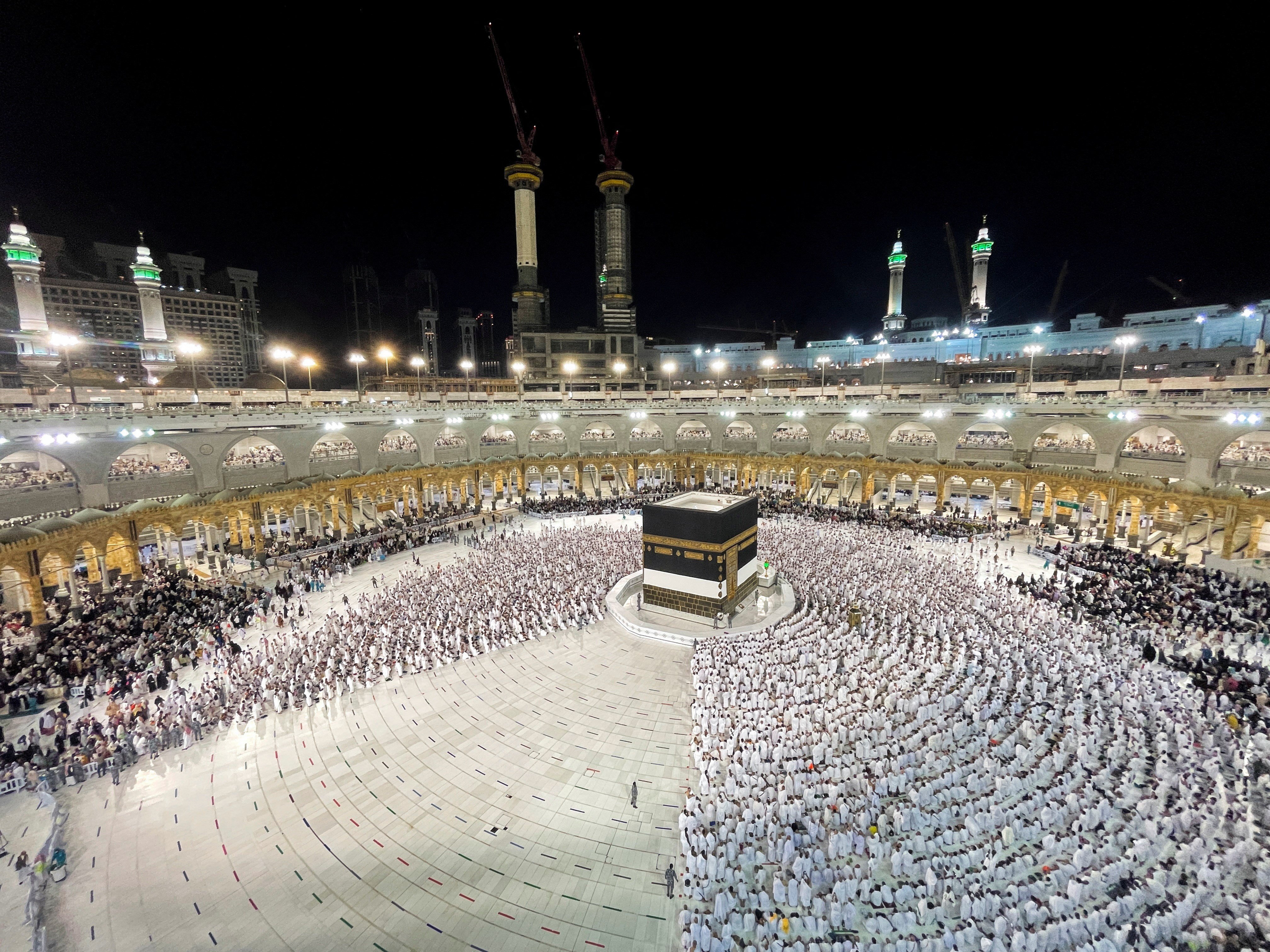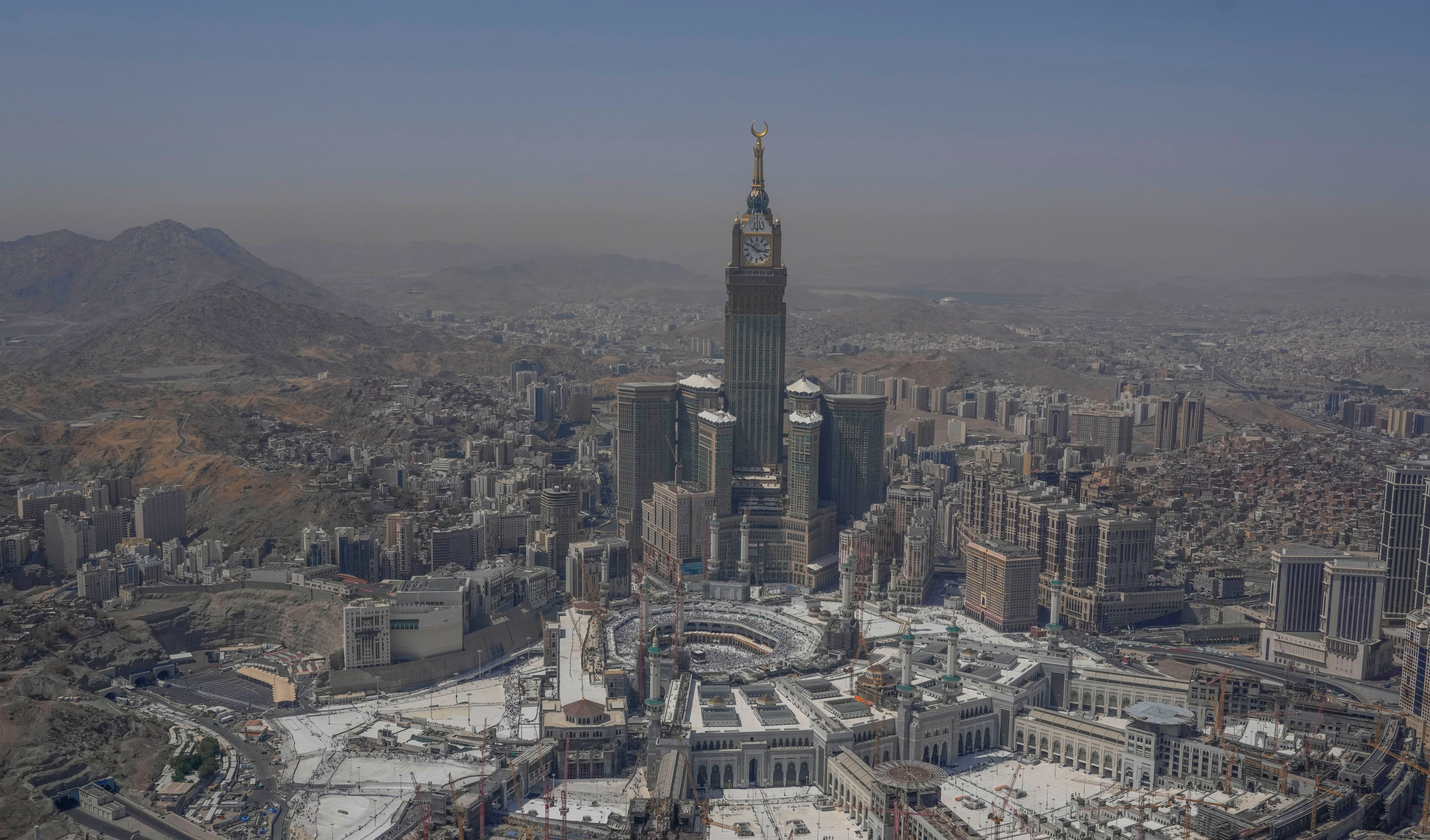Saudi Arabia restrains Yemeni pilgrims from completing their Hajj
Sanaa officials express their anger regarding the politically motivated hindering of religious practices during the month of Dhul Hijjah in which Muslim pilgrims complete their Hajj.
-

Muslim pilgrims pray at the Grand Mosque, Mecca, Saudi Arabia, July 1 2022. (Reuters)
Sanaa accused Saudi Arabia of obstructing Yemenis from performing the Hajj pilgrimage and using it as a political pressure tactic since the start of the Saudi-led coalition's war on Yemen.
Najib Al-Ajji, the Minister of Guidance and Hajj Affairs in the Sanaa government, stated that "Yemen's quota for pilgrims this year reached around 24,000."
He added that "the coalition countries and the Saudi-backed Yemeni government have imposed numerous difficulties and obstacles on Yemeni pilgrims," resulting in increased costs.
Al-Ajji explained that Yemeni passport holders can only travel to Saudi Arabia from areas controlled by the government it backs.
He also said that "the Hajj pilgrimage should be facilitated without being politicized or linked to any political problems, but the Saudi regime always associates the Hajj with its regional issues."
Furthermore, Fouad Naji, the Deputy Minister of Guidance and Hajj Affairs, stated that "the Saudi regime has used the Hajj as a pressure tool throughout the years of aggression and blockade."
Naji further added that Saudi Arabia has aggravated the suffering of Yemenis and increased the costs of performing the Hajj by more than three times compared to the prices from before the war on Yemen.
He also pointed out that Riyadh "has closed all border crossings and airports to Yemenis except for the Wadi'a crossing, which is not qualified to host the pilgrims.
The official stated that Saudi Arabia is "not qualified to manage the Hajj," adding that Muslims should raise their voices in unity and protest the Saudi regime's incompetence and ill-management of holy sites.
Earlier, the leader of the Yemeni Ansar Allah movement, Sayyed Abdul-Malik Al-Houthi, accused Saudi authorities of imposing exorbitant financial costs on pilgrims, stating that these costs qualify as unjustifiable oppressive blackmail.
He indicated that "the Hajj pilgrimage has been surrounded by obstacles that prevented Muslims from performing it due to political stances."
Muslims begin the Hajj pilgrimage in the month of Dhul Hijjah, according to the Hijri calendar, which coincides with June/July in the Gregorian calendar.
The costs of the pilgrimage have increased in recent years due to global inflation, deteriorating living conditions, and Riyadh's increased fees for religious occasions.

 3 Min Read
3 Min Read









